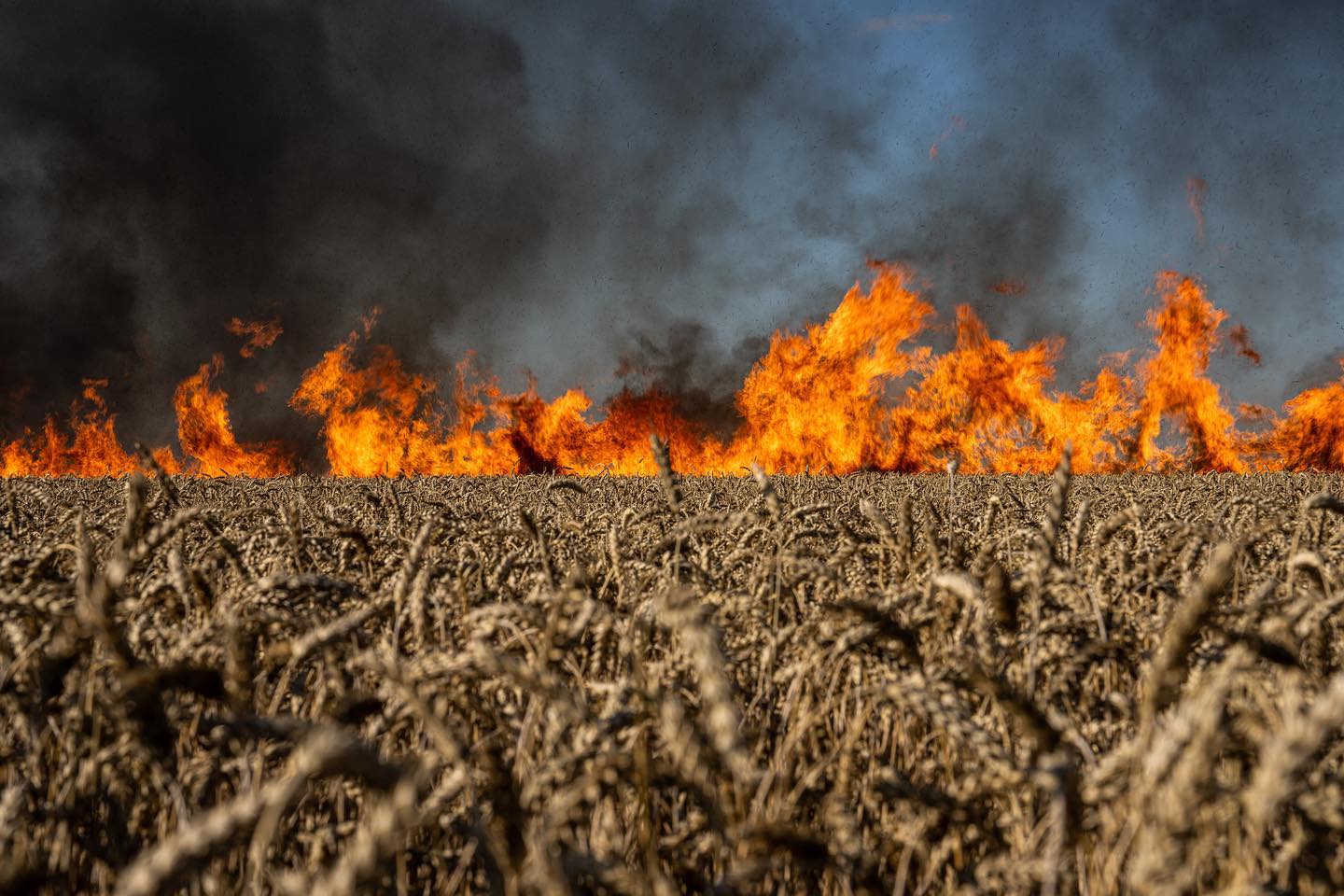Wildfires are worsening due to climate change, with emissions tripling in
extratropical forests. What does this mean for our planet's future?
Forest fires have long been a natural force shaping ecosystems, but their frequency and
intensity are now escalating at an alarming rate. Climate change is driving more extreme fire
seasons, particularly in the extratropical regions of North America and Eurasia, where
emissions from forest fires have nearly tripled in the past two decades. Scientists warn that
this increase is not just a short-term anomaly but a sign of deeper shifts in the global carbon
cycle—one that threatens international climate goals and the stability of Earth’s forests.
“The trend is clear—climate change is making forest fires more severe and widespread,”
says Dr. X, a leading fire ecologist. “We are seeing an undeniable link between rising
temperatures, drier conditions, and the sharp uptick in fire emissions.”
The science behind the surge
A recent study used machine learning to categorise global forest regions into 12 distinct
‘pyromes’—zones where fire activity is shaped by similar climate, vegetation, and human
factors. The findings revealed a stark contrast between tropical and extratropical forests.
While deforestation-related fires have declined in tropical regions due to stricter policies,
extratropical forests are experiencing a surge in fire severity. Rising temperatures, declining
soil moisture, and increased vegetation productivity are creating perfect conditions for more
intense and frequent fires.
In boreal forests spanning Eurasia and North America, emissions have surged by 60% since
2001. Not only are more areas burning, but the fires themselves are becoming more severe,
releasing more carbon per unit area than ever before. This trend is particularly worrying
because these forests store vast amounts of carbon, making them crucial in regulating the
global climate. According to the Intergovernmental Panel on Climate Change (IPCC), the
increasing severity of forest fires is strongly linked to anthropogenic climate change, with
rising temperatures and prolonged droughts acting as key drivers.
Case studies: Japan and Los Angeles fires
Recent wildfire disasters in Japan and Los Angeles highlight the growing severity of the
crisis. In Japan, wildfires were once rare due to the country's humid climate and well-
managed forests. However, the Kumamoto Fire of 2023 marked a turning point, burning
thousands of hectares and displacing communities. Scientists attribute this unprecedented
event to record-breaking heatwaves and prolonged droughts, conditions that are becoming
more frequent due to climate change.
Similarly, in Los Angeles, wildfires have become an almost annual catastrophe. The 2023
Los Angeles Fire was one of the largest on record, destroying homes, infrastructure, and
vast forested areas. Unlike previous years, this fire spread at an unprecedented rate, fuelled
by dry vegetation and extreme winds. Firefighters struggled to contain the blaze, highlighting
the increasing difficulty of managing fires in an era of intensifying climate extremes.
“The alarming rise in wildfire severity, as seen in Japan and Los Angeles, signals a global
shift,” says Dr. Y, a climate policy expert. “What were once exceptional events are becoming
the new normal.”
Why human influence matters
While climate change is the dominant factor driving fires in the extratropics, human activities
still play a role, particularly in the tropics. In tropical forests, fire activity has been declining
due to reduced deforestation and increasing agricultural fragmentation. However, the
fragmentation of dry tropical forests remains a concern, as it makes these ecosystems more
vulnerable to future fires.
The study also raises questions about how carbon emissions from fires are reported.
Currently, many countries count forest fire emissions as ‘natural,’ even in managed forests.
This underestimates the true impact of human-driven climate change on fire activity, creating
a gap between official carbon budgets and actual atmospheric CO2 levels. Scientists argue
that fire emissions should be included in national climate reporting to give a more accurate
picture of the world’s carbon balance.
What can be done?
Addressing the rise in extratropical fires requires a twofold approach—mitigation and
adaptation. Reducing greenhouse gas emissions remains the most effective way to curb
climate-driven fire risks. However, proactive forest management strategies can also help.
Key measures include:
Monitoring changes in vegetation productivity to predict fire risks.
Implementing fire management plans that prioritise controlled burns in fire-prone
areas.
Preventing further fragmentation of tropical forests to limit future fire spread.
Reforming carbon credit systems to account for fire risks in reforestation projects.
In regions with a long history of fire suppression, shifting towards managed, ecologically
beneficial fires could also prevent forests from turning from carbon sinks into carbon
sources.
The path forward
The message is clear: rising forest fire emissions pose a major challenge to global climate
targets. The steep increase in extratropical fire activity demands urgent attention—not just
from scientists and policymakers but from global leaders committed to tackling climate
change. If we fail to act, the world’s forests could shift from being a buffer against climate
change to a driving force behind it.
What should be the priority: stronger emissions cuts, better fire management, or a complete
overhaul of how we account for fire-related carbon emissions? The answer may determine
the future of our forests—and our planet.



